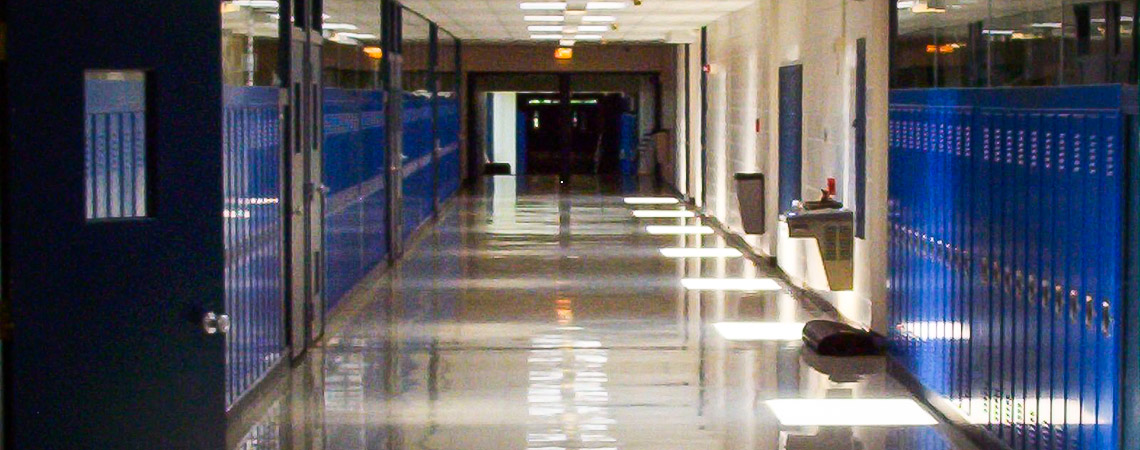I never imagined that both my children would be diagnosed with autism.
When my son began experiencing challenges in preschool, notes and phone calls about his troubles came home every day. It was so hard to hear teachers and administrators talk about him.
He is unfocused.
He is unteachable.
He has a hard time with transitions and meltdowns.
He isn’t allowing the other children to learn.
This was my son they were talking about. Sure, he was quirky, particular about things, and maybe a little rigid with his diet. But I never dreamed his behaviors were such trouble. As he grew, he continued to face problem after problem.
In my gut, I knew he was different. I devoted myself to learning about my son’s symptoms:
- Sensitivity to sounds, smells, taste or touch
- Anxiety
- Meltdowns lasting 30 minutes or more
- Difficulty expressing his needs and regulating emotions
- Difficulty making friends
- Not being able to transition from one activity to the next and needing lots of prompts
- Lining up his toys for hours
It was difficult to question teachers and school administrators; they made my husband and I feel like our parenting skills were the problem.
I asked for educational support from my son’s school, Bushnell Way Elementary, to help my son with his learning and socialization challenges, but they told me kindergarten was optional and they didn’t believe he qualified for special education. We turned to our pediatrician who helped diagnose our son with anxiety, sensory processing disorder and ADHD. We also received pro-bono legal assistance to help fight the school’s decision in waiting to evaluate him.
It wasn’t enough, so we kept searching.
Special Education in Los Angeles Is Outdated
What I discovered was the special education system in the Los Angeles Unified School District is a daunting maze. If you don’t have the means to pay an attorney or advocate, you are stuck learning how to navigate this complex system on your own. This can take years.
This is especially true for families who have a language barrier.
Special education in the LAUSD is outdated. Neither the district nor teachers are equipped or prepared for the influx of disabilities. Most children with autism are mainstreamed, placed in classrooms with peers who don’t have special needs. School principals don’t have the resources to provide training or support for special education.
As if it wasn’t challenging enough to raise a child (or, in my case, two children) with learning differences, you have to go into meetings not understanding what schools’ reports and assessments say because they are written with jargon and acronyms in a way only a professional can understand.
Schools don’t provide you with these reports before the meeting unless you know to ask. Therefore, you can’t be prepared or participate unless you are given the 20-page report at the meeting.
There were times when my husband and I would stay in these meetings for hours. They used intimidation tactics, bringing 10 to 15 members of school staffers who really didn’t need to be there.
Then the special education director would go around the room and ask them to vote, ensuring we were outnumbered.
Advice to Parents
Unfortunately, hundreds of parents of children with special needs have similar stories about the school district.
Looking back, I would have spent more time learning my parental rights and negotiation practices. If I have any advice to give to parents, it would be to educate yourself about your child’s disability.
Finally, at 11 years old, my son received his autism spectrum diagnosis at UCLA. Today, my son is 15 and he attends a great charter high school which is part of the Partnerships to Uplift Communities network, the first school he’s been able to thrive at for three years straight. Through a music program at the school, we discovered a musical gift we didn’t know he had. He has been playing electric guitar and loves it. My daughter was diagnosed at the age of 8, today she is 10, and is currently undergoing some independent educational evaluations through the district. We are hopeful we will finally get her the educational program and placement she needs.
It wasn’t easy and we are still fighting.
I am so happy that we didn’t give up. I am so fortunate that I am still married. I am so happy for the journey that led me to my life’s passion: helping families like mine.
Go with your gut, it’s usually right. Focus on your child’s strengths and build them up, because we know they can outshine their deficits and reveal the talents they have within.
This post originally appeared on Education Post.
Lisette Medina Duarte
Latest posts by Lisette Medina Duarte (see all)
- Consejos de Mamá Para Mantener a su Estudiante Organizado - February 21, 2019
- Mommy Tips for Keeping Your Student On Track - February 18, 2019
- Perspectiva de Una Mamá de Escuela Chárter: El Último Anuncio de Radio de CTA, Estiró la Verdad Sobre las Escuelas Chárter Sin Fines de Lucro - May 18, 2018
- Charter School Mom Perspective: CTA’s Latest Radio Ad Stretches the Truth About Non-Profit Charter Schools - May 14, 2018
- La Comadre y Pacoima Chárter Comparten Gratitud Social - November 8, 2017

